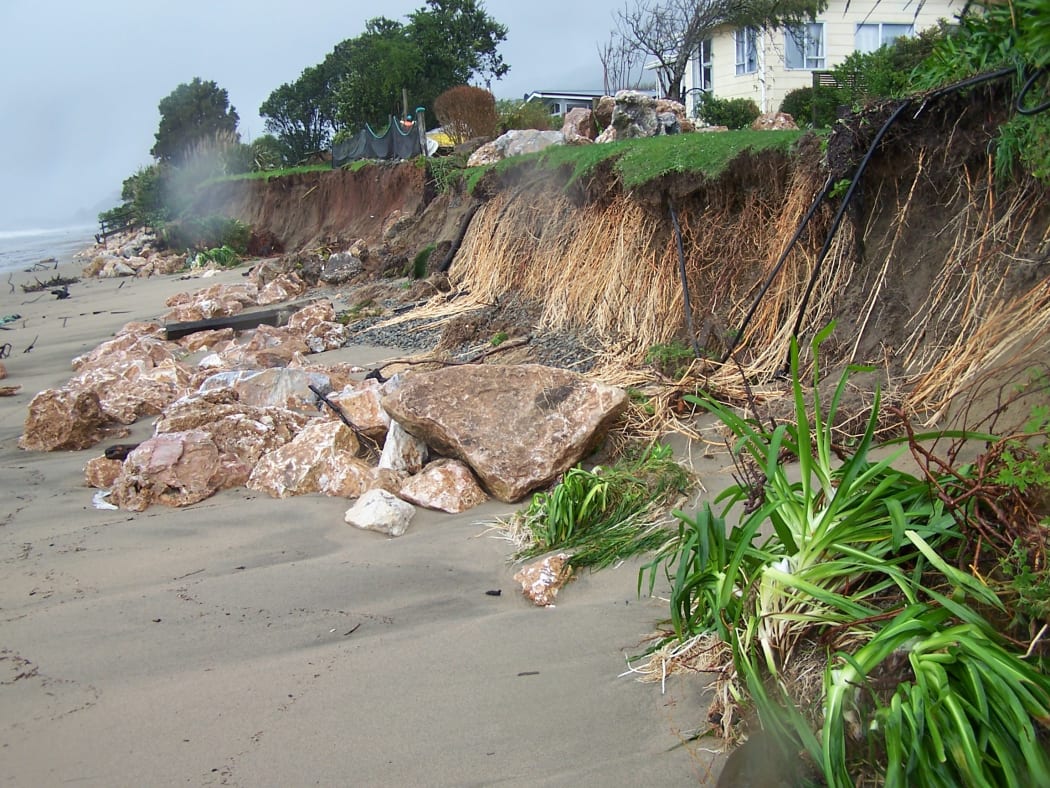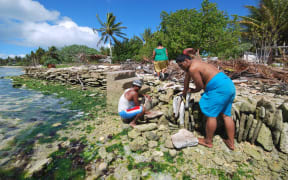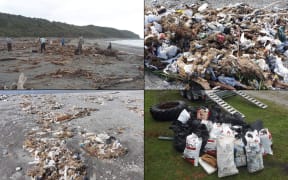A special fund should be set up to help pay for future costs of climate change, a conference in Palmerston North has been told.

File photo Photo: RNZ / Supplied
It would pay for resettling people from vulnerable coastal communities, and help pay for threatened seaside infrastructures, like roads, railways and ports.
The comments came from a Wellington academic Judy Lawrence who's a senior research fellow at Victoria University's Climate Change Research.
She was speaking at a conference of the New Zealand Agricultural Greenhouse Gas Research Centre.
She said the proposal for a climate change fund would be similar to the Earthquake Commission, which was set up in 1945 to pay for earthquakes, and the NZ Super Fund, which was set up in 2001, to pay for the future costs of pensions.
She said a climate change fund would have to be paid for from contributions over several generations because the cost would be huge.
"We are talking billions of dollars," Dr Lawrence said.
"Local Government New Zealand have done a recent assessment of the costs and they are talking of $14 billion.
"We think that is an underestimate of the real cost because there are a whole lot of things that are not included in that."
The director of the New Zealand Agricultural Greenhouse Gas Research Centre Harry Clark strongly supported this proposal but said care would be needed to determine who got how much help from such a fund.
He said sea level rise and coastal infrastructure should probably get priority.
The potential costs of all this are currently being looked at by the government even though everyone agrees the problem is far too unclear for any precise costs to be determined.
The Ministry for Primary Industries' climate change manager Nicky Ablitt said the government agreed there were no obvious solutions and any procedure would involve taking risks.
Another delegate at the conference was the Hawke's Bay Regional Council's chief executive James Palmer.
He said his council and other local authorities were already facing up to the dangers from coastal erosion in his region.
"What we haven't yet decided is how it will be paid for," he said.
"The local authorities are prepared to start putting money away.
"What we don't know is what contribution the Crown would be willing to make, both to safeguard its own assets, but also more broadly, on behalf of the wider communities."







